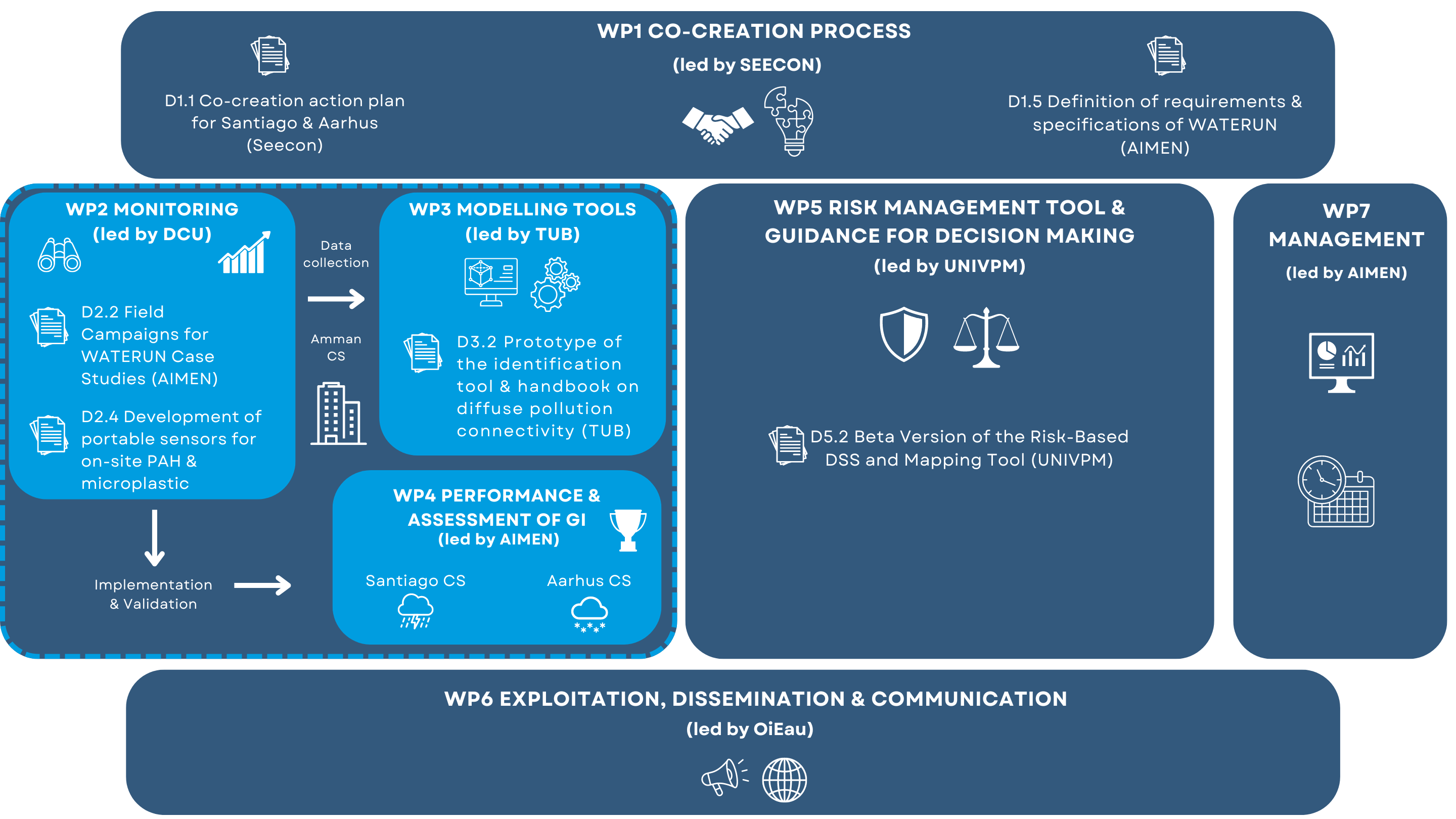The WATERUN project is making significant strides in urban water runoff (UWR) management through its innovative methodology grounded in the Water-Sensitive Urban Design (WSUD) concept. Several deliverables were planned for the month 24 of the project, i.e. on 30 May 2024.
These recent deliverables from various work packages demonstrate our project's progress in providing solutions for diffuse water pollution control in urban catchments.

Work package 1: Co-creation process & WATERUN Framework
D1.1 Co-creation action plans for Santiago and Aarhus (Seecon): In this public deliverable, Seecon presents the Co-Creation Action Plan of the WATERUN project, outlining a comprehensive approach to address collaborative stakeholder involvement in the development of projects OERs.
D1.5 Definition of requirements and specifications of WATERUN (AIMEN): Regarding this sensitive deliverable, AIMEN have agreed with the Project Officer to extend the deadline until the end of June, to include feedback from two more Local Stakeholders Boards that took place on June 11, in the frame of the 5th consortium meeting.
Work Package 2: Advanced Monitoring Strategies for Diffuse Pollution Control
D2.2 Field Campaigns for WATERUN Case Studies (CS) until M24 (AIMEN): This public deliverable details the characterization of three case study areas: Aarhus, Amman, and Santiago de Compostela. It describes the methodologies employed and the results achieved thus far at mid-project.
D2.4 Development of Portable Sensors for On-Site PAH and Microplastic (DCU), which is a sensitive document, outlines the strategies used to design and fabricate cost-effective microfluidic sensors for on-site detection of PAHs and microplastics. Additionally, related methodologies developed for sampling, sample preparation and as reference methods for sensor validation are introduced.
Work Package 3: Modelling Tools for UWR Management
D3.2 Prototype of the Identification Tool and Handbook on Diffuse Pollution Connectivity (TUB): This handbook introduces the CleanCityCover tool, a web-based ShinyApp application developed to identify critical source areas of diffuse pollution. This sensitive deliverable explains the theoretical background, components, and setup of the tool, which helps pinpoint highly contaminated urban areas for targeted interventions.
Work Package 5: Risk Management Tool & Guidance for Decision Making
D5.2 Beta Version of the Risk-Based DSS and Mapping Tool (UNIVPM): This sensitive deliverable introduces a Python-based tool integrated with various software to support quantitative risk assessments (QMRA, QCRA). The risk-based Decision Support System (DSS) incorporates the SWMM software for modeling urban runoff, a Python tool for processing SWMM outputs, and open-source GIS software for mapping data and facilitating stakeholder communication.
These deliverables highlight the WATERUN project's commitment to developing practical tools and methodologies for effective UWR management, ensuring a holistic approach from source identification to decision-making.
Public deliverables are available on Waterun website : https://www.waterun.eu/media-center#deliverables
Authors: Marie-Paule ADDE, OiEau,mp.adde@oieau.fr ; Mélanie FAYET, OiEau, m.fayet@oieau.fr - July 2024